Audio Version Of The Blog – 5/22/22
Listen to an Audio Version of the Blog
Download:MP3 Audio

Listen to an Audio Version of the Blog
Download:MP3 Audio
My new article on Linkedin “The Relentless Pursuit of Honor”

Without the need for honor, a person would live quietly in a corner. So, there is a kind of inner fire that constantly fuels us and compels us to succeed in the eyes of others. They should appreciate us, respect us, talk about us.
Honor is a condition that cannot be inherited, we have to work for it. Everything depends on the values that are accepted in society. It can be a society that values money and status symbols, or one that values simplicity and a modest life. A criminal society that values power and violence, or a society of artists that values sensitivity and creativity. In either case, depending on our innate characteristics, the education we received, and the society that surrounds us, each person wants to gain the attention, appreciation, and respect of those around him or her. Without it, one does not feel whole.
At any given moment, society provides us with a model against which we are measured. It makes us work, make an effort to become more and more like this model of success. Some people are willing to invest a lot to be remembered well after they die, because the feeling of dignity has no limits, neither in time, nor in place, nor in intensity.
Honor, is it good or bad? It depends on how the tendency is used. To illustrate, if I want to spur a child to invest in his studies and tell him, ‘You are better, you will be great, everyone will respect you,’ I am giving him motivation to study, which is good. On the other hand, if I keep lowering his dignity, I destroy his self-confidence and nothing comes of it.
With regard to ourselves, we must examine the direction in which respect drives us. If the desire to be above everything drives a person to act at the expense of others, to kick them on the way to the summit, to control and maneuver them, then that is destructive honor. Constructive honor, on the other hand, is that I want to be respected precisely by helping everyone, sacrificing myself for them, caring about their welfare and well-being. If society honors me for such an attitude on my part as a good and generous person, that is constructive honor. It will also be accompanied by constructive competition: which of us invests more for the benefit of society.
Because of human beings selfish nature, there is a tendency to belittle others instead of respecting them. A selfish society puts everyone under constant pressure: Is my dignity being violated? Are you giving me the respect I deserve? Is there someone more respectable than me? Overall, this pressure puts us in a cutthroat competition that destroys our relationships, our health, and our lives.
Social and personal development improves when we learn to use the wisdom of connection. On the whole, this method changes our egoistic nature to a nature of bestowal. With its help we come to a situation where we connect as one man with one heart.
Gradually you begin to feel a special power of bestowal, love and giving. A connecting and unifying force. It becomes the source of a special inspiration of mutual respect. It is a sublime, spiritual, wonderful feeling. Everyone feels whole, especially in connection with others. It is an honor for the person to be in such a relationship with everyone.
Mutual respect means that I respect the other and he or she respects me, because only together can we build a system of communication in which the same supreme power is revealed. I do not underestimate anyone because I feel dependent on others for the sake of my personal development. To be more precise, we can say that we do not respect each other, but the state of common connectedness that has been built. And that is a very special honor.
In a nutshell, those who want to be respected are recommended to learn and also teach others how to connect properly, how to rise together to the most dignified degree of existence there is.
[298007]

Michael Laitman, On The Times of Israel: “The War in Ukraine Is Changing the World”
The war in Ukraine is unlike any war that’s been. Although it seems local, this war is changing the world. In the end, after all the pain, the parties will establish new relationships, and new relationships will be established around the world. This war is the beginning of a formation of a new world order, where all parties unite against the one common enemy of all of humanity: egoism. It will take time, but everyone involved will realize, and the whole world with them, that they are not fighting against each other, but against an enemy within them. If we let the idea sink in, even a bit, it will make it happen even sooner.
The war that began in late February will not end soon. It will take many more months until everyone realizes that war itself, the very concept of it, is evil. In that sense, the war in eastern Europe is correcting all of humanity, transforming our perception and our understanding of good and evil.
The casualties, the injured, and the lost property are a terrible price to pay. Nevertheless, global processes always come at a cost. We should not blame others for the cost, and we should not think that there is nothing each of us can do to change the world. It is in the hands of every person to change the world for the better, and to make the atrocities of war, and all atrocities that humans are inflicting on each other, disappear. All we need is to realize that the only enemy lies within us—our self-centered attitude. It incites us against each other, demonizes and vilifies anyone who disagrees with us, tells us that we are the only ones entitled in this world, and thereby sets us off against each other. We are all like that, infected with a pandemic of narcissism.
Nevertheless, there is a lot we can do to change the world. First, we must accept that there is a good reason we are so different from each other. Each of us makes a unique contribution to the world that no one else can. If we were all the same, the contributions we receive from others, and on which our lives depend, would be absent, and we would not survive, in the most physical sense of the word.
We will realize that our ego is the enemy only when we realize that singularity is the wrong key word for happiness. Today, the key word for happiness is complementarity—mutual satisfaction of each other’s material, social, emotional, and spiritual needs.
We are living in a world where we are all dependent on each other. The food we eat, the clothes we wear, and the appliances and gadgets that we use are all made by people we do not know, in places we do not know, and reach us in ways we do not know. But were it not for this chain of myriad unknown individuals, we would not survive, since we cannot provide for our needs by ourselves.
The same goes for social ties. All our connections, communications, and interactions with other people are made possible with the help of countless people who serve us without our awareness. But were it not for them, we would not be able to work or socialize.
Despite this obvious fact, we behave toward others with as little consideration as possible, and when we are nice or considerate, it is because we have an ulterior, selfish motive. We do not have the prerogative to keep up this behavior. We are destroying the world and destroying ourselves.
Back in the 1930s, Baal HaSulam, a great thinker and a great kabbalist, wrote an epic essay titled “Peace in the World.” In it, he writes, “Man is inherently born to lead a social life. Each and every individual in society is like a wheel that is linked to several other wheels placed in a machine.” How odd it is that ninety years ago, before World War II, people already realized that we are all dependent on each other and must behave toward each other with consideration. Just think what we could have avoided had we been more attentive and open-minded.
Now, too, we are headed for a catastrophe unless we pay attention and begin to act like one entity, one global society that works like a single, united family. The war will change the world, but I hope we can change ourselves before the war changes us.
[297972]
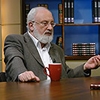 The story of the exit from Egypt includes the entire history of humanity, which is still unfinished and, to date, practically has not yet begun.
The story of the exit from Egypt includes the entire history of humanity, which is still unfinished and, to date, practically has not yet begun.
In the Torah, this is just a short story. However, the Torah itself is an instruction. It is necessary to understand how it is written. That is, exiting the slavery of your egocentric sensations is the most fundamental thing of all the Torah that a person should do.
[297664]
From KabTV’s “Spiritual States” 4/19/22
Related Material:
Are We Slaves?
The Effect Of The Land Of Israel
We Exit Egypt Every Second
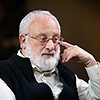 Question: There are people who feel the thoughts of others and predict what will happen. Is it the same as catching a spiritual wave?
Question: There are people who feel the thoughts of others and predict what will happen. Is it the same as catching a spiritual wave?
Answer: No, this is the animalistic level. This hypersensitivity is also found in animals.
This only proves that such abilities like the qualities of Wolf Messing and others are above the human body, that all of the present, past, and future exist, and it only manifests itself now or later in the sweep of time in relation to us. But in fact, all this is without time and without space; it all exists and that’s it.
Question: In other words, are these people a certain receiver through whom the thought of the common field works in this way?
Answer: Yes, of course. A person can as if break away from this moment, delve into the next moment and accept another thought, which is realized in him in a form of a vision of future events.
In this thought, in which we exist, absolutely all events exist. They depend on the person. That is, these events do not even exist. A person must internally tune in to them, then he will receive information.
After all, all events exist there not in a corporeal, but rather in an amorphous form—what you tune into is what you feel. However, you are the one who feels, you are the receiver, this is embodied in you.
[297549]
From KabTV’s “Close-Up. Secrets of Immortality” 1/7/11
Related Material:
A Generator Or A Receiver Of Thoughts?
Thoughts And Mind
Why Do Unpleasant Thoughts Appear?
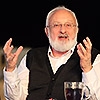 Question: It is written: “The sons of Israel sighed because of the work.” The term “Israel” refers to those who aspire to the Creator (Yashar-El). What kind of work are we talking about?
Question: It is written: “The sons of Israel sighed because of the work.” The term “Israel” refers to those who aspire to the Creator (Yashar-El). What kind of work are we talking about?
Answer: A person sighs because he cannot exit Egypt because of his egoism. But he suffers not only from egoistic thoughts and desires that are passed on to him from the Egyptians but also from the questions that arise in him: “Who is the Creator?” and “Why do I need this work?” This is what makes his work so hard.
He wants to get out of the egoistic world into the altruistic one so that all his actions are for the sake of bestowal, so that he does not ask for anything for them, but only fulfills them.
Let others receive all the reward and even so that he does not know about it and they would not know about him. This is what the person desires. Yet, he does not succeed. Then he comes to his last cry.
[297260]
From KabTV’s “Spiritual States” 4/14/22
Related Material:
When Will We Finally Exit Egypt?
Cut Pharaoh Off
The Front Brakes
 Question: In ancient times there was a court of Kabbalists—Sanhedrin. How do you think such a court would assess a crime committed in a state of passion?
Question: In ancient times there was a court of Kabbalists—Sanhedrin. How do you think such a court would assess a crime committed in a state of passion?
Answer: During the times of the Sanhedrin, it ruled, judged, and educated society.
It was a governing body, foundational in its laws and educated the population. The entire ideological tune of the society was focused on it. Decisions were made on how to pull the society to a higher degree, educate a new generation, and so on.
In fact, the court’s purpose was not to punish but to correct a person. According to the notions of those times, there was no such punishment as imprisonment. What can be achieved by this? Nothing.
Send the offender to some kind of forced labor, force him to live in a certain society that will correct him. At the time of the Sanhedrin, there were so-called cities of refuge or other places where a person would be under the influence of the most serious educators rather than supervisors, oppressors, or guards.
While today, we isolate a person from society, place him in a concentrated, evil, terrible society of murderers, robbers, and rapists. Naturally, he receives additional bad influences from such a place.
And after that we let him back in! So what is achieved by that?! Someone who is 20, 30, or 100% evil is released into a normal society.
Naturally, he will act as he was taught in prison. Therefore, all prison and detention systems are detrimental. It practically turns our society into one detention center. And there is no escape from it.
Although in many countries this system is called correctional labor, the fact is, they do not seriously set the goal of correction. While the Sanhedrin was intimately involved in this.
[297269]
From KabTV’s “Close-Up. Outlaw” 12/19/10
Related Material:
Then We Will Not Need Judges
Who Are The Judges?
Prison Is Not What Reforms A Rapist
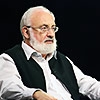 Question: It is not clear how we can remain opposite and at the same time be united with the Creator. How can something unite with something opposite to it?
Question: It is not clear how we can remain opposite and at the same time be united with the Creator. How can something unite with something opposite to it?
Answer: Thanks to your intention. I cannot change my thought, my desire, but I can change the form of its use—for whose sake it is. It turns out that on one hand, we become equal to the Creator in our intention, we act together with Him in unison, in homeostasis.
On the other hand, we remain in our nature, which we cannot change. And we do not need to change it. Thus, we emphasize our independence, our oppositeness to Him. As created beings, we do not dissolve in a common thought, but are superimposed on it like two waves.
Initially, when we were created, we were dissolved in this thought, we did not feel ourselves. A person in our world, too, does not feel himself. The little man who exists in seven billion copies does not feel himself. He automatically does what the general thought of the universe prescribes to him, what it induces, directs at him.
[297440]
From KabTV’s “Close-Up. Secrets of Immortality” 1/7/11
Related Material:
The Main Thing Is Intention
Where Is The Intention?
Intention And Its Influence On Reality
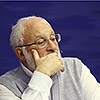 Question: Where does thought originate from?
Question: Where does thought originate from?
Answer: Thought is primordial. If we delve into thought, we see that we are going beyond time. There is no beginning and no end, and therefore there is immortality. Which means we are not talking about how we feel at the moment, as a certain physical body of a certain consistency: warm and occupying a certain volume.
A person is his thought, his primordial desire, a set of his primordial mental and sensory elements, set parameters, called “Reshimo” in Kabbalah. It is something perfect, eternal, not subject to birth, death, time, or anything.
Question: In what state do we really exist?
Answer: This is the state in which we exist. And all our other states, as if dressed on this thought and are perceived by us in this way. That is what the Bible says: “In the beginning was the word…” which means thought.
[297140]
From KabTV’s “Close-Up. Secrets of immortality” 1/7/11
Related Material:
Everything Will Be Clarified In The Thought
The Thought Of Creation Is A Precondition For Pesach
How Are Thoughts Transmitted?
Preparation to the Lesson
| [media 1] | [media 2] |
Lesson on the Topic “The Approach to Studying the Wisdom of Kabbalah”
| [media 3] | [media 4] |
Writings of Baal HaSulam, “Matan Torah” (Giving of the Torah)
| [media 5] | [media 6] |
Writings of Baal HaSulam, “Study of the Ten Sefirot, Vol. 1, Part 2,” “Inner Observation,” Chapter 2, Item 14
| [media 7] | [media 8] |
Selected Highlights
| [media 9] | [media 10] |